Markus V. Höhne, WAKHVA-Mitglied, analysiert auf dem Online-Portal African Arguments mit „Israel Recognizes Somaliland: Risks for Peace and Conflict in the Somali Horn of Africa“ die Anerkennung Somalilands durch Israel.
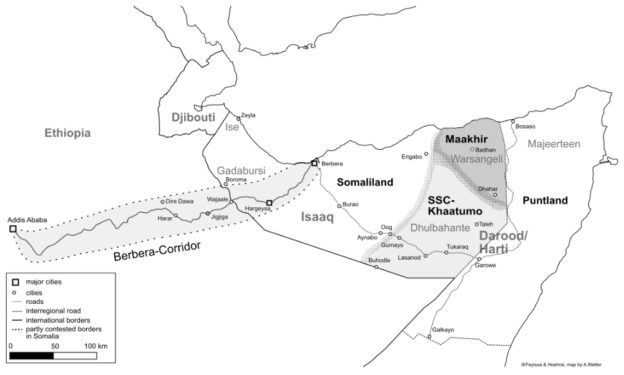
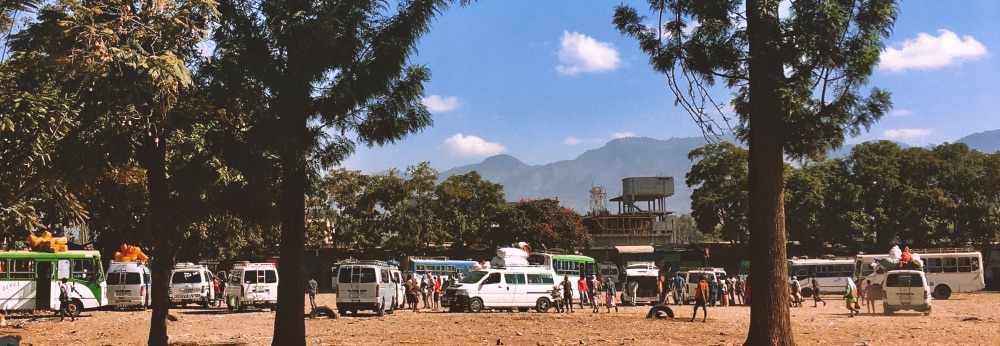

Markus V. Höhne, WAKHVA-Mitglied, analysiert auf dem Online-Portal African Arguments mit „Israel Recognizes Somaliland: Risks for Peace and Conflict in the Somali Horn of Africa“ die Anerkennung Somalilands durch Israel.
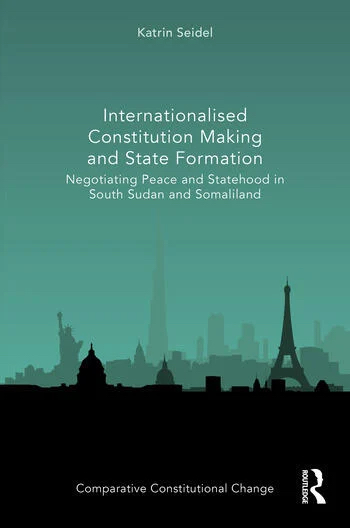
03 July 2025,18:00 CET (registration see below)
„This book presents an in-depth and nuanced interdisciplinary and comparative analysis of (post-)conflict constitution-making in South Sudan and Somaliland, exploring the ways in which the two emerging states negotiate statehood in a globalised world. It critically examines the transfer of international constitution-making models as part of international rule of law promotion frameworks. Specific emphasis is placed on the socio-cultural translation dynamics of these models in conflict settings. The comparative study explores the tensions between state sovereignty and international interventions, examining whether international constitution-making involvement fosters the production of societal consensus or inadvertently impedes efforts to achieve stability and peace. By focusing on constitutional law-making, the book sheds light on how normative ideas are transformed in negotiations and opens up new analytical avenues for re-thinking conventional constitution-making practices. It critically reconsiders the assumption that every emerging state requires a written constitution, alongside the state-centred notion of sovereignty underpinning this paradigm. Additionally, the study addresses the power and knowledge hierarchies inherent in international interventions, providing empirical data from post-conflict African contexts. The book will be of interest to academics, researchers, and policy-makers working in the areas of comparative public law, constitutionalism, sociology of law, anthropology, legal geography, international relations, political science, and African studies.“
Registration by Email

Hassan Kochore
05 June 2025,18:00 CET (registration see below)
Marsabit Mountain, located in the eponymous county in northern Kenya, offers a key dry season grazing fallback for pastoralists inhabiting the surrounding lowlands as well as for groups from Southern Ethiopia, especially during periods of protracted droughts. In the 1950s, due to increasing numbers of cattle on the mountain, the British colonial administration introduced what it termed, ‘Marsabit Mountain Grazing Control Rules’ (MMGCR). According to the MMGCR, the cattle allowed to graze on the mountain would be branded. This added a new page to the already existing catalogue of rules (such Game and forest rules and so on) targeted at managing the human population and livestock numbers on the Mountain, and in the township area. The MMGCR particularly targeted cattle numbers, especially those moving between Marsabit and Southern Ethiopia. This led to a protracted struggle between the government officials and the community members over the implementation of the grazing rules. Eventually, a ‘showdown’ with the community that the officials had anticipated materialised. One of the results was that, by official estimations, ’at least half’ of the Boran (one of the agro-pastoralist groups on the mountain) permanently left Marsabit for Southern Ethiopia. Subsequently, the remaining population had to contend with tighter regulations that saw unprecedented levels of contact between the community and the state. Based on Kenya National Archives sources and life history interviews, this presentation (part of a paper in preparation) discusses this critical event. It seeks to make two significant contributions. First, it highlights the specific role of chiefs in the implementation of the MMGCR. Chiefs became important points of contact between the community and the government, managing the demands of the people as well as enforcing government regulations. By critically interrogating this interaction, this paper demonstrates that the nature of the state authority changed significantly. This is down to the fact that chiefs who had previously been, during most of the colonial period, noted to ‘do little good’ to support the administration, became indispensable local level bureaucrats. Secondly, the MMGCR is generally missing from the historiography of the region, eclipsed by the more spectacular decade of secessionist politics and the armed insurgency (The so-called Shifta War) that followed it. This presentation places the MMGCR in the immediate and wider historical context contributing to a closer understanding of colonial environmental ‘conservation’ and the processes of state (un) making in late colonial northern Kenya and elsewhere in the Horn.
Hassan H. Kochore, earned his PhD from the Max Planck Institute for Social Anthropology and Martin-Luther-University, Halle-Wittenberg . He has has published on the Politics of Decentralisation, Centre-Periphery Relations and Ethnographies of Large-Scale Infrastructures with a regional focus on Kenya and southern Ethiopia. He recently led a Rift Valley Institute project that focused on Decentralisation, Trade and Conflict Dynamics on Kenya’s Borders with Ethiopia and Somalia.
Registration by Email
by Timkehet Teffera Mekonnen, 14 November 2024
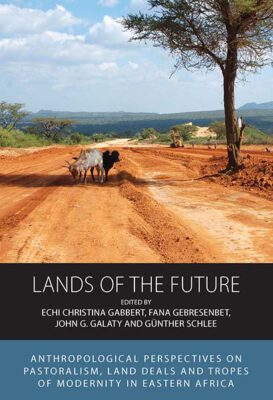
Online book presentation with Echi Gabbert, Asebe Regassa and Jonah Wedekind
15. Juni 2022, 18 Uhr, Zoom
About the Book
Rangeland, forests and riverine landscapes of pastoral communities in Eastern Africa are increasingly under threat. Abetted by states who think that outsiders can better use the lands than the people who have lived there for centuries, outside commercial interests have displaced indigenous dwellers from pastoral territories. This volume presents case studies from Eastern Africa, based on long-term field research, that vividly illustrate the struggles and strategies of those who face dispossession and also discredit ideological false modernist tropes like ‘backwardness’ and ‘primitiveness’.
In diesem Artikel diskutieren Markus Höhne und Tabea Scharrer Dynamiken von Inklusion und Exklusion bezüglich somalischer Migrantinnen in Deutschland. Die Autorinnen rücken die Aushandlungen von Migrant*innen ins Zentrum der Analyse und zeigen, wie diese im Prozess der Niederlassung in Deutschland zwischen verschiedenen Normen, individuellen Interessen und unterschiedlichen sozialen Netzwerken manövrieren. Höhne und Scharrer stellen fest, dass entgegen den im öffentlichen Diskurs oft vertretenen Ansichten, ethnische (Selbst-)Identifikation nicht zwangsläufig zu Isolation und Ausschluss aus der deutschen Gesellschaft führt. Vielmehr dienen zum Beispiel formale und informelle somalische Gemeinschaften und Vereine in Deutschland als Brücke, um Kontakt zu deutschen Behörden oder NGOs herzustellen und so Angelegenheiten von gemeinsamem Interesse diskutieren zu können. Gleichzeitig kann Exklusion durch Rassismus zur Abschottung führen, setzt aber auch insbesondere jüngere Somalis unter Druck, Allianzen mit Deutschen zu schmieden, um ihre Situation zu stabilisieren. Auch innerhalb der somalischen Gemeinschaften in Deutschland kommt es zu Ausgrenzungen entlang von Kategorisierungen wie Geschlecht oder Klanzugehörigkeit. Insofern beleuchtet der Artikel die widersprüchlichen und mehrdeutigen Prozesse der Vergesellschaftung im migrantisch geprägten Deutschland der Gegenwart.
Link zum Artikel
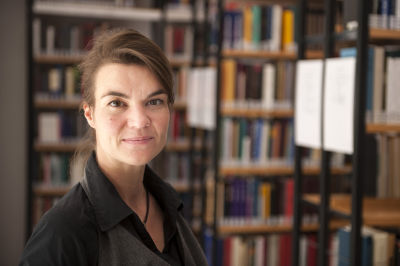
Ein Interview mit Katrin Seidel zu ihrer Habilitation über Südsudan und Somaliland
Meine Studie untersucht insbesondere das Spannungsfeld zwischen internationalen politischen Interventionen und lokaler Eigenverantwortung. Letztlich geht es um die Aushandlung von Legitimität und Partizipation, von Grundwerten und dem Wesen einer politischen Gemeinschaft
Am 10. Februar 2021 wurde Katrin Seidel von der Juristischen und Wirtschaftswissenschaftlichen Fakultät der Martin-Luther-Universität Halle-Wittenberg habilitiert. Im Anschluss an ihren öffentlichen Vortrag wurde ihr die Venia Legendi für Rechtsethnologie, Rechtssoziologie und Rechtsvergleichung verliehen. Ihre Habilitation schrieb sie zum Thema: “Internationalised Constitution-Making as Tool for Negotiating Statehood and Rule of Law: South Sudan’s and Somaliland’s Constitutional Genesis in the Context of Plural Legal (Dis-) Ordering”
Der Ethnohistoriker Wolbert Smidt weist in seinem Spiegel-Interview auf kulturelle und demographische Faktoren hin, die bei der Analyse des Krieges in Tigray wenig Beachtung finden. Dazu gehören die traditionelle Autonomie von Regionen wie Tigray und eine aufgeheizte gesellschaftliche Atmosphäre, in der ein Großteil der sehr jungen Bevölkerung Narrativen zuneigt, die „Schuldige“ benennen.
https://www.spiegel.de/politik/ausland/aethiopien-ethnologe-erklaert-buergerkrieg-a-6f0c8ee5-addc-420f-8d37-cb83c7f47f26
„Äthiopien spricht nicht mehr mit den Äthiopiern“.
Dazu auch der Hinweis auf ein Interview mit Wolbert Smidt im September 2020, in seinem Forschungsgebiet in Tigray. Zur anwachsende politischen Krise sagte er:
https://deutsch-aethiopischer-verein.de/artikel-1/articles/interview-wolber-smidt.htm
Dazu auch ein Artikel über Beschädigungen und Zerstörungen kultureller Denkmäler in Tigray https://news.yahoo.com/no-more-sacred-places-heritage-054549797.html
Podcast-Gespräch zwischen Reinhold Jawhari vom Austrian Centre for Country of Origin and Asylum Research and Documentation (ACCORD), Sophie Roche von der Universität Heidelberg und Markus Höhne von der Universität Leipzig zur sozio-ökonomischen Lage in Somalia. Das Gespräch soll dazu dienen, allen Interessierten fundierte Einblicke in Herkunftsländer in Asylverfahren zu geben.
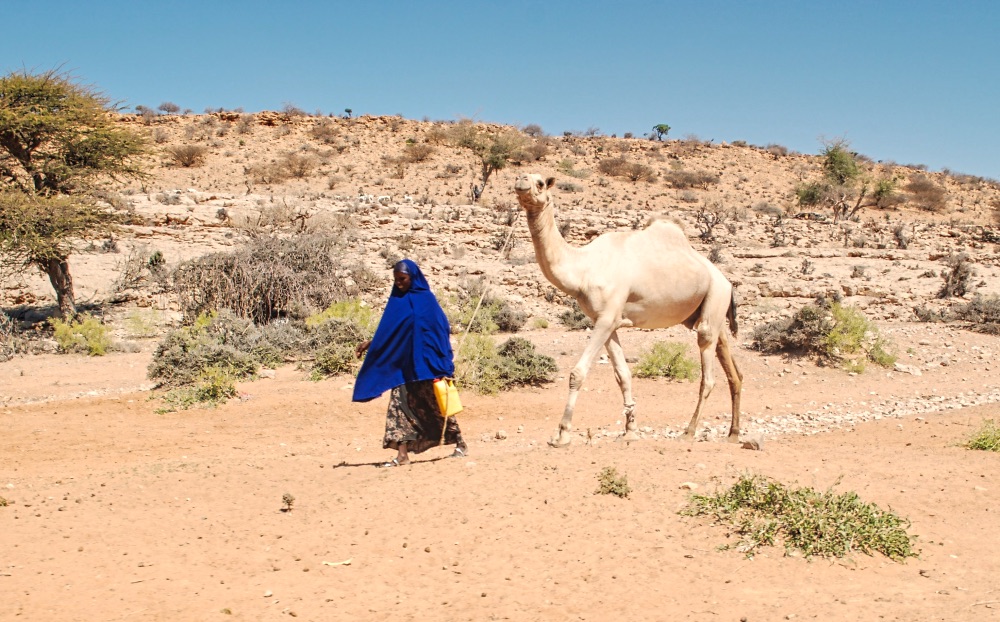
Socio-economic situation in Somalia
Podcast discussion between Reinhold Jawhari from the Austrian Centre for Country of Origin and Asylum Research and Documentation (ACCORD), Sophie Roche from Heidelberg University and Markus Höhne from Leipzig University on the socio-economic situation in Somalia. The purpose of the conversation is to give all those interested in-depth insights into countries of origin in asylum proceedings.